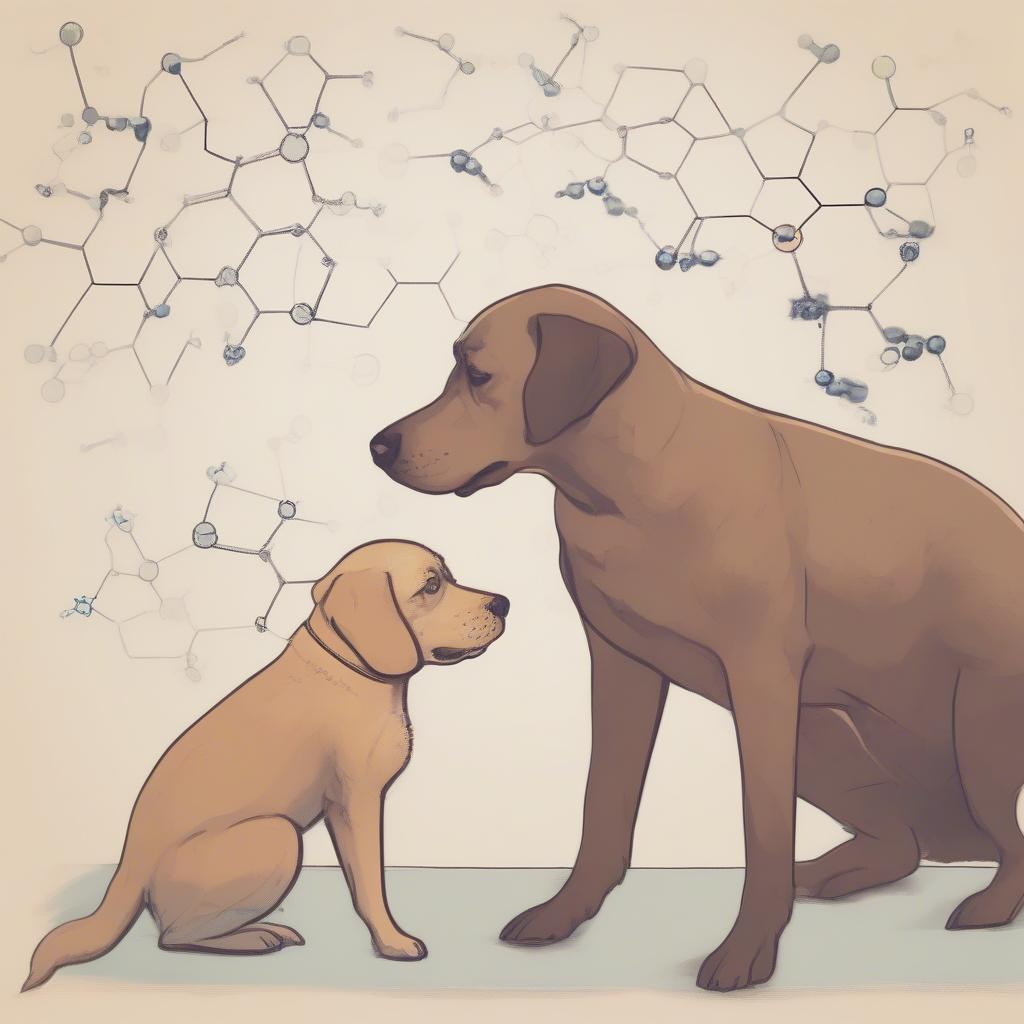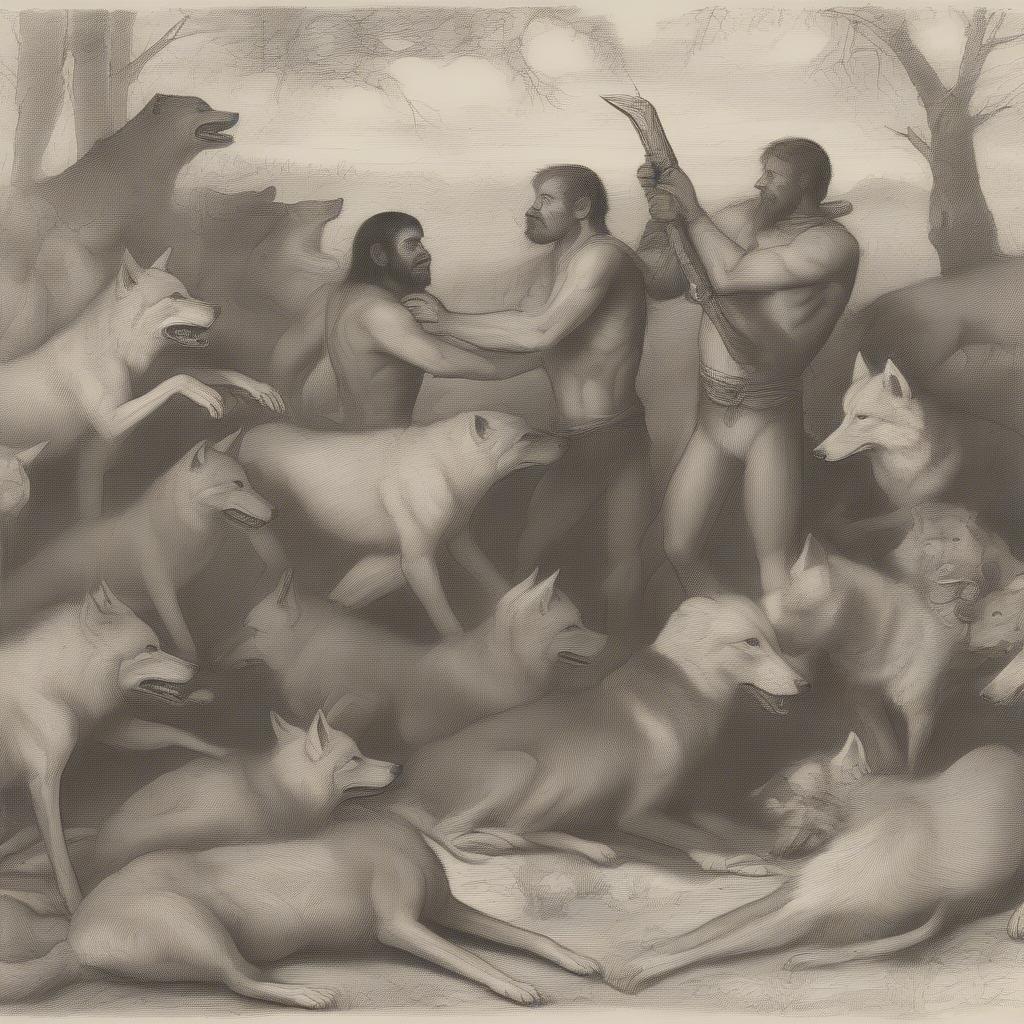Humans have forged a unique bond with animals, a connection that transcends mere utility. Why Do Humans Love Animals? This deep affection spans cultures and generations, prompting us to welcome furry, feathered, and scaled companions into our homes and hearts. This article explores the multifaceted reasons behind this enduring love affair.
The Science Behind Our Affection for Animals
 The Human-Animal Bond and Oxytocin
The Human-Animal Bond and Oxytocin
Our love for animals has deep biological roots. Interacting with animals triggers the release of oxytocin, often called the “love hormone,” in both humans and animals. This powerful neurochemical promotes feelings of bonding, trust, and well-being. Studies have shown that petting a dog, for example, can lower blood pressure and heart rate in both the human and the canine companion. This mutual benefit strengthens the bond and reinforces the positive association. Furthermore, the act of caring for an animal fulfills our innate nurturing instincts, providing a sense of purpose and satisfaction.
Evolutionary Advantages of Loving Animals
From an evolutionary perspective, our relationship with animals has played a crucial role in our survival. Early humans who formed alliances with animals, such as dogs for hunting and protection, had a significant advantage. This mutually beneficial relationship likely contributed to the development of the emotional connection we see today.
 Early Human-Animal Partnerships
Early Human-Animal Partnerships
Psychological Benefits of Animal Companionship
how can you tell if your cat loves you
Beyond the biological factors, the psychological benefits of animal companionship are immense. Animals offer unconditional love and acceptance, providing a constant source of comfort and support. They can alleviate feelings of loneliness and isolation, particularly for individuals living alone or experiencing social difficulties. Pets also encourage physical activity and provide a routine, which can be especially beneficial for mental well-being. Studies have shown that pet owners tend to have lower levels of stress and anxiety compared to non-pet owners.
Animals and Emotional Support
Animals can also play a vital role in emotional support. Therapy animals, for example, are increasingly used in hospitals and care facilities to provide comfort and emotional support to patients. The presence of an animal can reduce anxiety and pain, promoting a sense of calm and well-being.
The Cultural Significance of Animals
Our love for animals is deeply ingrained in our culture. From childhood stories featuring talking animals to elaborate pet funerals, animals hold a significant place in our collective consciousness. Many cultures revere certain animals as symbols of strength, wisdom, or good fortune. This cultural significance further reinforces our emotional connection with animals, shaping our perceptions and interactions with them.
Why Do We Anthropomorphize Animals?
We often attribute human-like qualities and emotions to animals, a process known as anthropomorphism. While this can sometimes lead to misinterpretations of animal behavior, it also reflects our deep emotional connection and desire to understand our animal companions.
The Responsibility of Loving Animals
Our love for animals comes with a responsibility to ensure their well-being. This includes providing proper care, nutrition, and veterinary attention. It also means advocating for animal rights and supporting organizations that work to protect animals from cruelty and neglect.
Conclusion
Why do humans love animals? The reasons are complex and multifaceted, encompassing biological, psychological, and cultural factors. From the release of oxytocin to the fulfillment of our nurturing instincts, our love for animals is a testament to the powerful bond we share with other living beings. This connection enriches our lives in countless ways, reminding us of the importance of compassion, empathy, and the interconnectedness of all life. do my cats know i love them
FAQ
- What are the benefits of owning a pet?
- How do animals help with emotional support?
- Why is it important to be a responsible pet owner?
- How can I support animal welfare organizations?
- What are some common misconceptions about animal behavior?
- How do I choose the right pet for my lifestyle?
- What are the different ways animals express their affection?
For further assistance, please contact us at Email: contact@daiduongtranhba.com, or visit our office at Michigan Ave, Suite 3100, Chicago, IL 60611, USA. We have a 24/7 customer service team available to help.

